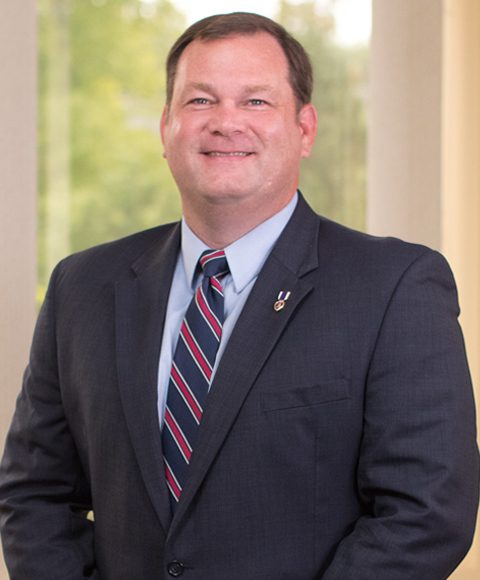If you are a current or former federal employee who served in the U.S. military or National Guard, you may be entitled to additional paid military leave, thanks to a recent court ruling.
Feliciano v. Department of Transportation
In Feliciano v. Department of Transportation, decided April 30, 2025, the U.S. Supreme Court determined that the appellant, Nick Feliciano, a Federal Aviation Administration air traffic controller, was improperly deprived of 22 days of required leave per applicable calendar year to which he was entitled under 5 U.S.C. § 6323(b).
Reserve military personnel who are called to active duty in support of what is called a “contingency operation” are entitled to an additional 22 days of compensated leave per calendar year from their federal civilian employer. They are also entitled to credit for time or service for that 22-day period.
Ready to book your consultation? Click below to pay our consultation fee and book your meeting with an attorney today!
When on active duty, reservists often receive less pay than they earn in their civilian jobs, the case states. To address this gap, Congress adopted a “differential pay” statute requiring the government to make up the difference between a federal civilian employee’s military and civilian pay in various circumstances. Failure to grant a service member the appropriate leave for active military service contravenes the Uniformed Services Employment and Reemployment Rights Act of 1994 (USERRA).
At issue in the Feliciano case was whether the court’s language guarantees differential pay when a reservist serves on active duty while a national emergency is ongoing, or whether it requires proving a “substantive connection” between the service and a particular national emergency.
Further, the term “contingency operation” is broadly interpreted as an operation that results in the call or order to, or retention on, active duty of members of the uniformed services under any provision of the law or during a national emergency declared by the president.
The court determined that the appellants were improperly deprived of the 22 days of leave per applicable calendar year to which they were entitled under 5 U.S.C. §6323(b) and noted that the Board previously held that an allegation stating that an employer took or failed to take certain actions based upon the appellant’s military status or obligations in violation of USERRA amounts to a non-frivolous allegation entitling the appellant to Board consideration of his claim.
The Supreme Court held that a federal civilian employee who is called to active duty is “entitled to differential pay if the reservist’s service temporally coincides with a declared national emergency without any showing that the service bears a substantive connection to a particular emergency.”
This decision not only strengthens the existing rights of veterans but also opens up a potential class of current and former federal civilian employees who previously may not have been entitled to differential pay.
O’Farrell v. Department of Defense
The Merit Systems Protection Board (MSPB) previously held in O’Farrell v. Department of Defense (2018) that an allegation stating that an employer took or failed to take certain actions based upon the appellant’s military status or obligations in violation of USERRA amounts to a non-frivolous allegation entitling the appellant to Board consideration of his claim.
In O’Farrell, the U.S. Court of Appeals created a broad interpretation of what qualifies as support for contingency operations for federal employees who served in the military after Sept. 11, 2001.
Michael O’Farrell, Jr. had been working as a general attorney in Defense Logistics Agency. He used his 15 days of paid military leave, as well as most of his accrued annual leave and advance annual leave, during a 162-day assignment to the U.S. Navy’s Naval Surface War Center (NSWC).
O’Farrell requested 22 additional days of paid military leave from the Department of Defense, stating it was because he was supporting the military’s operation in Afghanistan. The agency denied the request and said his active duty was not in support of a contingency operation.
The MSPB upheld the Department of Defense decision in the O’Farrell case, but the Federal Circuit overturned it on the basis of the MSPB’s misinterpretation of Section 6323(b) of the U.S. Code, which allows members of the Reserves and National Guard to receive paid time off from their federal agencies for military service.
You can contact us 24 hours a day, 7 days a week via phone at 8885294543, by e-mail at info@tullylegal.com or by clicking the button below:
The Federal Circuit court ruled in February 2018 that O’Farrell was in fact entitled to 22 additional days of paid military leave from the Department of Defense for serving at the NSWC in 2013. That ruling paved the way for thousands of other service members to receive additional paid time off from their federal agencies for serving on active duty post-9/11—similar to the thousands of federal employees who received additional paid military leave following a similar ruling in Butterbaugh v. Department of Justice in 2003.
Butterbaugh v. Department of Justice
In Butterbaugh, the Federal Circuit ruled that federal agencies improperly charged military leave prior to December 2000 because the agencies counted non-working, weekend days within the then-15-days allotted to paid military time. As a result, agencies were required to compensate those employees who had to use personal annual leave to fulfill their military obligations.
File your claim
Tully Rinckey PLLC has attorneys ready to assist any federal employees affected by the Feliciano ruling. We will not charge any up-front fees and only collect attorney fees when a case is in favor of the claimant.
Federal employees filing successful claims filed with the MSPB will receive relief in one of two ways: 1) personnel still employed by the same federal agency will receive restored annual leave, or: 2) retired or separated federal employees will receive a lump-sum payment for the lost leave, which will be paid at the rate they were earning at the time of retirement or separation.







